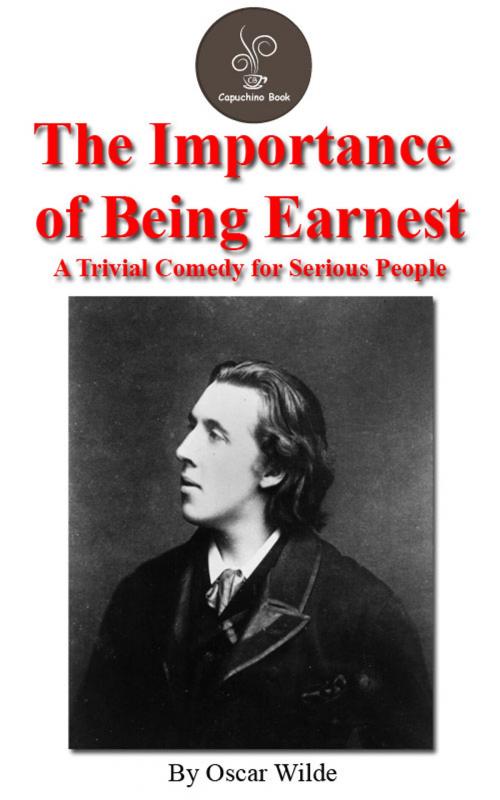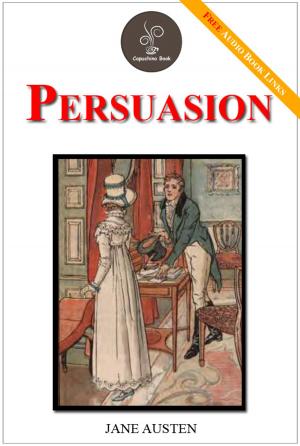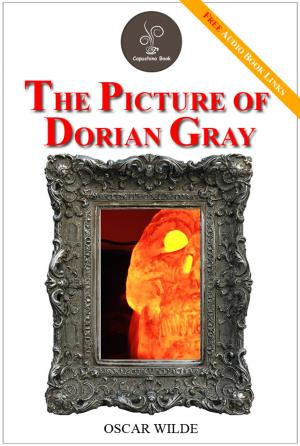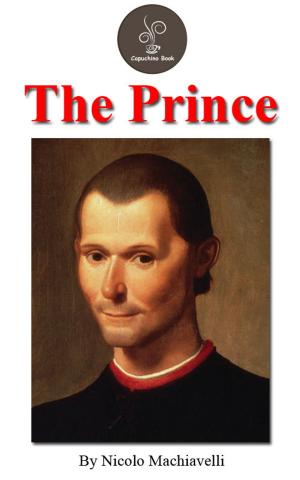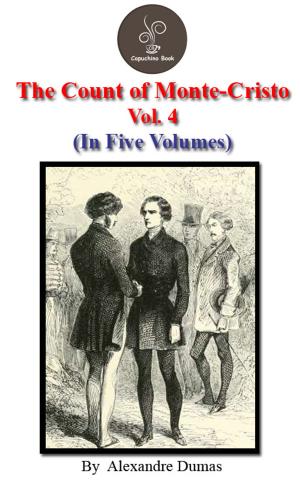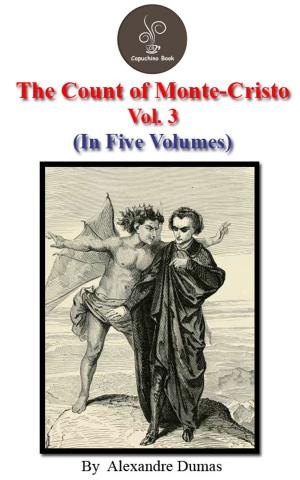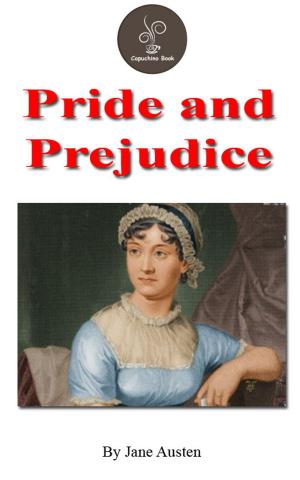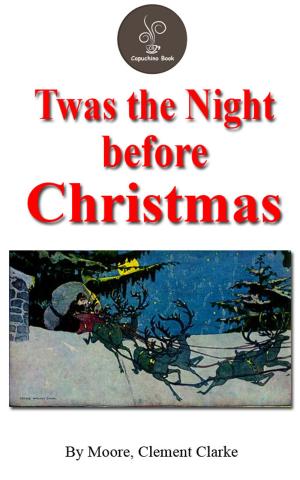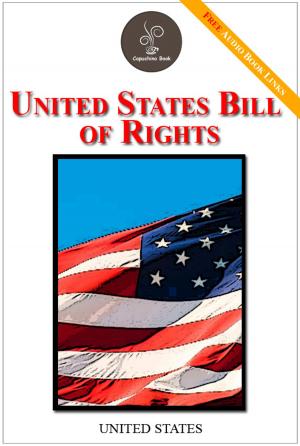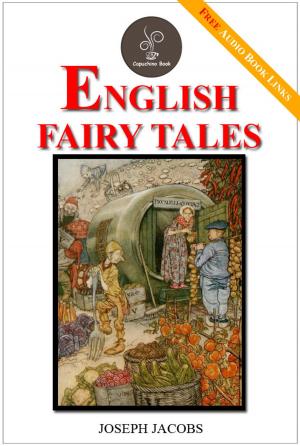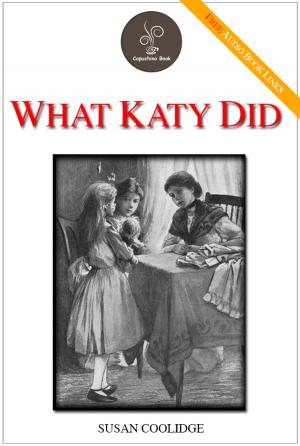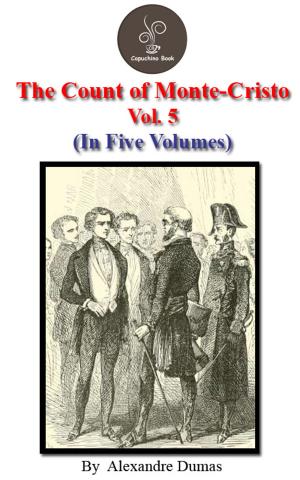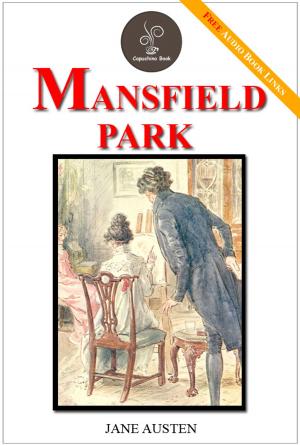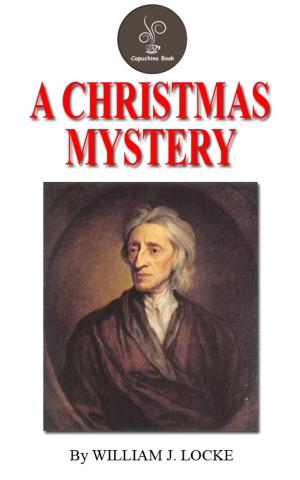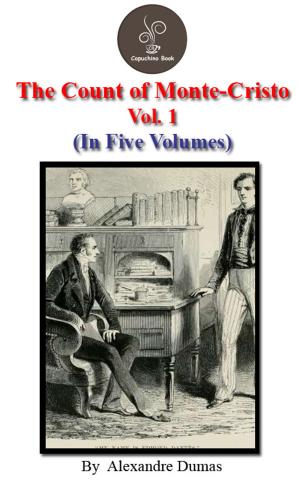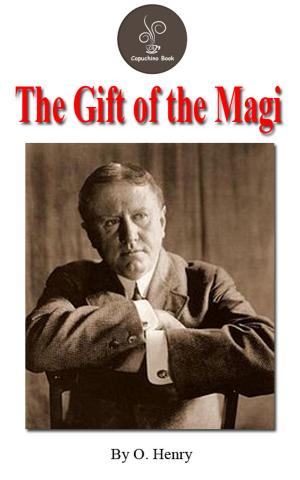The importance of being Earnest; a trivial comedy for serious people (FREE Audiobook Included!)
Fiction & Literature, Humorous, Literary| Author: | Oscar Wilde | ISBN: | 1230000096895 |
| Publisher: | Capuchino Book | Publication: | January 5, 2013 |
| Imprint: | Language: | English |
| Author: | Oscar Wilde |
| ISBN: | 1230000096895 |
| Publisher: | Capuchino Book |
| Publication: | January 5, 2013 |
| Imprint: | |
| Language: | English |
The importance of being Earnest; a trivial comedy for serious people (FREE Audiobook Included!) :
-Included TOC for Reader.
-Included biography the author.
-Free Audiobook link for download.
About the novel
The Importance of Being Earnest, A Trivial Comedy for Serious People is a play by Oscar Wilde. First performed on 14 February 1895 at St. James's Theatre in London, it is a farcical comedy in which the protagonists maintain fictitious personae in order to escape burdensome social obligations. Working within the social conventions of late Victorian London, the play's major themes are the triviality with which it treats institutions as serious as marriage, and the resulting satire of Victorian ways. Contemporary reviews all praised the play's humour, though some were cautious about its explicit lack of social messages, while others foresaw the modern consensus that it was the culmination of Wilde's artistic career so far. Its high farce and witty dialogue have helped make The Importance of Being Earnest Wilde's most enduringly popular play.
The successful opening night marked the climax of Wilde's career but also heralded his downfall. The Marquess of Queensberry, father of Lord Alfred Douglas, an intimate friend of Wilde, planned to present Wilde a bouquet of rotten vegetables and disrupt the show. Wilde was tipped off and Queensberry was refused admission. Soon afterwards, however, their feud came to a climax in court, where Wilde's homosexual double life was revealed to the Victorian public and he was eventually sentenced to imprisonment. Wilde's notoriety caused the play, despite its success, to be closed after just 86 performances. After his release, he published the play from exile in Paris, but he wrote no further comic or dramatic work.
The Importance of Being Earnest has been revived many times since its premiere. It has been adapted for the cinema on three occasions. In The Importance of Being Earnest (1952), Dame Edith Evans reprised her celebrated interpretation of Lady Bracknell; The Importance of Being Earnest (1992) by Kurt Baker used an all-black cast; and Oliver Parker's The Importance of Being Earnest (2002) incorporated some material cut during the preparation of the original stage production.
Film
Main articles: The Importance of Being Earnest (1952 film), The Importance of Being Earnest (2002 film), and The Importance of Being Earnest (2011 film)
Aside from multiple "made-for-television" versions, The Importance of Being Earnest has been adapted for the English-language cinema at least three times, first in 1952 by Anthony Asquith who adapted the screenplay and directed it. Michael Denison (Algernon), Michael Redgrave (Jack), Dame Edith Evans (Lady Bracknell), Dorothy Tutin (Cecily), Joan Greenwood (Gwendolen), and Margaret Rutherford (Miss Prism) were among the cast.[63] In 1992 Kurt Baker directed a version using an all black cast, set in the United States of America.[64] Oliver Parker, an English director who had previously adapted other plays by Wilde, made a film in 2002; it stars Colin Firth (Jack), Rupert Everett (Algy), Dame Judi Dench (Lady Bracknell), Reese Witherspoon (Cecily), Frances O'Connor (Gwendolen), Anna Massey (Miss Prism), and Tom Wilkinson (Dr. Chasuble).[65] Parker's adaptation includes the dunning solicitor Mr. Gribsby who pursues Jack to Hertfordshire (present in Wilde's original draft, but cut at the behest of the play's first producer).[12] Algernon too is pursued by a group of creditors in the opening scene. An Indian version of The Importance of Being Earnest in Telugu by the name "Ashta Chamma" was released in 2008 and was a critical and commercial success.[citation needed]
Opera and radio
In 1963, Erik Chisholm composed an opera from the play, using Wilde's text as the libretto.[66]
In 1977, BBC Radio 4 broadcast the first radio adaptation of the four-act version of the play; directed by Ian Cotterell, it featured Fabia Drake as "Lady Bracknell", Richard Pasco as "Jack Worthing", Jeremy Clyde as "Algernon Moncrieff", Maurice Denham as "Rev. Canon Chasuble", Sylvia Coleridge as "Miss Prism", Barbara Leigh-Hunt as "Gwendolen" and Prunella Scales as "Cecily". The production was released on CD as part of the "Classic Radio Theatre" series by BBC Audio (ISBN 978-1408426937).
To commemorate the centenary of the first performance of The Importance of Being Earnest, BBC Radio 4 broadcast a radio adaptation on 13 February 1995; directed by Glyn Dearman, it featured Judi Dench as "Lady Bracknell", Sir Michael Hordern as "Lane", Michael Sheen as "Jack Worthing", Martin Clunes as "Algernon Moncrieff", John Moffatt as "Rev. Canon Chasuble", Miriam Margolyes as "Miss Prism", Samantha Bond as "Gwendolen" and Amanda Root as "Cecily". The production was released on audio cassette by Hodder Headline Audiobooks by arrangement with BBC Enterprises (ISBN 1-85998-218-2).
On 13 December 2000, BBC Radio 3 broadcast a new radio adaptation directed by Howard Davies starring Geraldine McEwan as "Lady Bracknell", Simon Russell Beale as "Jack Worthing", Julian Wadham as "Algernon Moncrieff", Geoffrey Palmer as "Rev. Canon Chasuble", Celia Imrie as "Miss Prism", Victoria Hamilton as "Gwendolen" and Emma Fielding as "Cecily", with music composed by Dominic Muldowney. The production was released on audio cassette by the BBC Radio Collection (ISBN 0-563-47803-9).
The importance of being Earnest; a trivial comedy for serious people (FREE Audiobook Included!) :
-Included TOC for Reader.
-Included biography the author.
-Free Audiobook link for download.
About the novel
The Importance of Being Earnest, A Trivial Comedy for Serious People is a play by Oscar Wilde. First performed on 14 February 1895 at St. James's Theatre in London, it is a farcical comedy in which the protagonists maintain fictitious personae in order to escape burdensome social obligations. Working within the social conventions of late Victorian London, the play's major themes are the triviality with which it treats institutions as serious as marriage, and the resulting satire of Victorian ways. Contemporary reviews all praised the play's humour, though some were cautious about its explicit lack of social messages, while others foresaw the modern consensus that it was the culmination of Wilde's artistic career so far. Its high farce and witty dialogue have helped make The Importance of Being Earnest Wilde's most enduringly popular play.
The successful opening night marked the climax of Wilde's career but also heralded his downfall. The Marquess of Queensberry, father of Lord Alfred Douglas, an intimate friend of Wilde, planned to present Wilde a bouquet of rotten vegetables and disrupt the show. Wilde was tipped off and Queensberry was refused admission. Soon afterwards, however, their feud came to a climax in court, where Wilde's homosexual double life was revealed to the Victorian public and he was eventually sentenced to imprisonment. Wilde's notoriety caused the play, despite its success, to be closed after just 86 performances. After his release, he published the play from exile in Paris, but he wrote no further comic or dramatic work.
The Importance of Being Earnest has been revived many times since its premiere. It has been adapted for the cinema on three occasions. In The Importance of Being Earnest (1952), Dame Edith Evans reprised her celebrated interpretation of Lady Bracknell; The Importance of Being Earnest (1992) by Kurt Baker used an all-black cast; and Oliver Parker's The Importance of Being Earnest (2002) incorporated some material cut during the preparation of the original stage production.
Film
Main articles: The Importance of Being Earnest (1952 film), The Importance of Being Earnest (2002 film), and The Importance of Being Earnest (2011 film)
Aside from multiple "made-for-television" versions, The Importance of Being Earnest has been adapted for the English-language cinema at least three times, first in 1952 by Anthony Asquith who adapted the screenplay and directed it. Michael Denison (Algernon), Michael Redgrave (Jack), Dame Edith Evans (Lady Bracknell), Dorothy Tutin (Cecily), Joan Greenwood (Gwendolen), and Margaret Rutherford (Miss Prism) were among the cast.[63] In 1992 Kurt Baker directed a version using an all black cast, set in the United States of America.[64] Oliver Parker, an English director who had previously adapted other plays by Wilde, made a film in 2002; it stars Colin Firth (Jack), Rupert Everett (Algy), Dame Judi Dench (Lady Bracknell), Reese Witherspoon (Cecily), Frances O'Connor (Gwendolen), Anna Massey (Miss Prism), and Tom Wilkinson (Dr. Chasuble).[65] Parker's adaptation includes the dunning solicitor Mr. Gribsby who pursues Jack to Hertfordshire (present in Wilde's original draft, but cut at the behest of the play's first producer).[12] Algernon too is pursued by a group of creditors in the opening scene. An Indian version of The Importance of Being Earnest in Telugu by the name "Ashta Chamma" was released in 2008 and was a critical and commercial success.[citation needed]
Opera and radio
In 1963, Erik Chisholm composed an opera from the play, using Wilde's text as the libretto.[66]
In 1977, BBC Radio 4 broadcast the first radio adaptation of the four-act version of the play; directed by Ian Cotterell, it featured Fabia Drake as "Lady Bracknell", Richard Pasco as "Jack Worthing", Jeremy Clyde as "Algernon Moncrieff", Maurice Denham as "Rev. Canon Chasuble", Sylvia Coleridge as "Miss Prism", Barbara Leigh-Hunt as "Gwendolen" and Prunella Scales as "Cecily". The production was released on CD as part of the "Classic Radio Theatre" series by BBC Audio (ISBN 978-1408426937).
To commemorate the centenary of the first performance of The Importance of Being Earnest, BBC Radio 4 broadcast a radio adaptation on 13 February 1995; directed by Glyn Dearman, it featured Judi Dench as "Lady Bracknell", Sir Michael Hordern as "Lane", Michael Sheen as "Jack Worthing", Martin Clunes as "Algernon Moncrieff", John Moffatt as "Rev. Canon Chasuble", Miriam Margolyes as "Miss Prism", Samantha Bond as "Gwendolen" and Amanda Root as "Cecily". The production was released on audio cassette by Hodder Headline Audiobooks by arrangement with BBC Enterprises (ISBN 1-85998-218-2).
On 13 December 2000, BBC Radio 3 broadcast a new radio adaptation directed by Howard Davies starring Geraldine McEwan as "Lady Bracknell", Simon Russell Beale as "Jack Worthing", Julian Wadham as "Algernon Moncrieff", Geoffrey Palmer as "Rev. Canon Chasuble", Celia Imrie as "Miss Prism", Victoria Hamilton as "Gwendolen" and Emma Fielding as "Cecily", with music composed by Dominic Muldowney. The production was released on audio cassette by the BBC Radio Collection (ISBN 0-563-47803-9).
